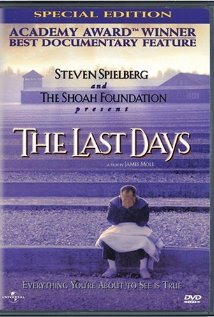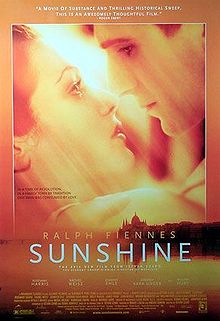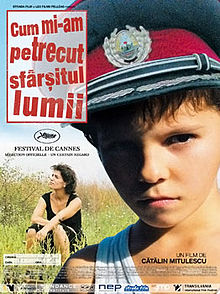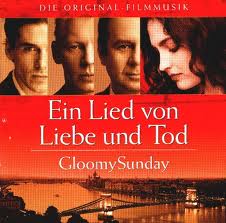 The setting is Budapest, Hungary in the late 1930s when the shadow of the Nazis is creeping in. László is a Jew who manages an up-scale restaurant. He is involved with the beautiful waitress Ilona. They hire András as the restaurant’s pianist, but sparks fly between András and Ilona the moment they meet. However, Ilona is not able to separate from László. Also, since a friendship develops between László and András, the three fall into a weird love triangle. In addition, Ilona rejects the affections of a young German man named Hans, so he tries to commit suicide. László is the one to save him.
The setting is Budapest, Hungary in the late 1930s when the shadow of the Nazis is creeping in. László is a Jew who manages an up-scale restaurant. He is involved with the beautiful waitress Ilona. They hire András as the restaurant’s pianist, but sparks fly between András and Ilona the moment they meet. However, Ilona is not able to separate from László. Also, since a friendship develops between László and András, the three fall into a weird love triangle. In addition, Ilona rejects the affections of a young German man named Hans, so he tries to commit suicide. László is the one to save him.
András composes a song called “Gloomy Sunday” for Ilona, and gives Ilona the song as her birthday present. With the help of László, this song is released as a record and becomes a big hit, but people one after another commit suicide while listening to this song. Before long, Hans comes back to Budapest as an executive officer of the Nazis, and the fates of Ilona, László, and András turn dark.
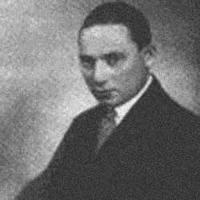 This movie is not just sentimental fiction, and is actually partly based on facts. The song “Gloomy Sunday” that is played in the movie was composed by the Hungarian composer Rezső Seress in 1930s while he was working as a pianist in the restaurant owned by László Jávor, who added the song lyrics. In addition, there is the urban legend that people one after another committed suicide while listening to this song. At one point, the song was banned from British and American broadcasting stations. Rezső Seress, like András in this movie, also committed suicide.
This movie is not just sentimental fiction, and is actually partly based on facts. The song “Gloomy Sunday” that is played in the movie was composed by the Hungarian composer Rezső Seress in 1930s while he was working as a pianist in the restaurant owned by László Jávor, who added the song lyrics. In addition, there is the urban legend that people one after another committed suicide while listening to this song. At one point, the song was banned from British and American broadcasting stations. Rezső Seress, like András in this movie, also committed suicide.
I think it is only an urban legend that people commit suicide when they listen to this song, but this song may reflect the darkness that Hungarians felt for 30 years through the Great Depression, losing in World War I, and being under Nazi control.
Hungary formed the Austro-Hungarian Dual Monarchy with Austria in the late 19th century, and jumped to the top in the world economically as well as culturally; but the empire collapsed in World War I and Hungary was cut off from Austria, so Hungary lost half of its territory and had to receive humiliating economic sanctions. Due to the Trianon Treaty in 1920, Hungary lost 72% of the area of the Austro-Hungarian Dual Monarchy and 64% of its population; around half of all Hungarians were left behind outside of the country of Hungary. I wonder if there is a nation that has faced more humiliation. On the other hand, the Czech Republic and Poland in the north—Hungary’s rivals over territory since ancient times—won their independence as republics, and were enjoying prosperity. Due to this bitterness, Hungary allied with Germany and became a member of the Axis. Backed by Germany, Hungary was able to recover land in the Slovak-Hungarian War in 1939 and avoid a fate like Poland and the Czech Republic—being conquered by Germany and disappearing from the map. However, most Hungarian people gradually came to want to withdraw from the Axis, but by that time, it was already too late and Hungary was unable to do so.
In the end, the Axis lost in World War II, but at one time Turkey, Bulgaria, Romania, Czech Republic, Poland of Eastern Europe, the Netherlands, Belgium, Norway, and the northern part of France were occupied, and all except Spain and Great Britain was under of the control of the Axis. Although Spain didn’t participate in the war, they were a “close friend” of Germany’s; almost all of Europe, except for Great Britain and neutral Soviet Union, fell into Hitler’s hand at that time.
I thought this movie was going to just be a soap opera. (The term “soap opera” refers to cheap-looking daytime melodramas, ever since a detergent company sponsored a sappy romantic melodrama series that broadcasted in the middle of the day in order to target the housewife market.) However, this movie is surprisingly popular among movie critics who pride themselves in (supposedly) intelligent critiques. I wondered why this was, and I realized after I watched this movie that it was because it is like a Takaratzuka (a Japanese all-female musical troupe) show. When one buys a ticket for a Takaratzuka show, one does not buy with the expectation that it will be an intellectual criticism, or reproduction of historical facts, or strange art for art’s sake. One is happy to enjoy two hours being enchanted by the beauty. This movie does just that.
However, this movie is not just sweet, but also bitter and cleverly complicated. Hans is the character in this movie that is supposed to be most hated because he sends László, who saved Hans’s life, to a Nazi concentration camp without hesitation, despite Ilona’s desperate plea. He is in a position to be able to easily save Jews. In fact, he let countless Jews escape from the country for a large amount of money or jewels. Whenever he helped Jews, he always told them, “If something happens to me, please testify that I helped you.” In other words, this man is like Schindler in Schindler’s List. Even though Schindler is depicted as the hero in Spielberg’s movie, the same character can be quite ugly when presented from a different angle. Although Hans was part of the Nazi’s SS, he lives on after the war as a hero who helped Jews, and comes back as a very successful businessman to tour Budapest with his wife.
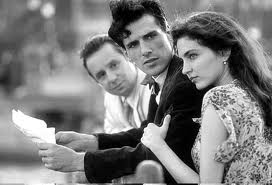 Ilona is loved by three men, and skillfully manipulates the three of them. Well, she never thought she was manipulating the men because she thought it was just love. After András commits suicide, his large amount of royalties is inherited by Ilona. Also, in order to protect his restaurant, László hands over the rights to his restaurant to Ilona right before being sent to a concentration camp, and Ilona makes his legendary restaurant her own. In addition to being handsome and a talented pianist, András also has a good understanding of finance and has practical skills needed to negotiate financial matters. The movie clearly depicts these financial negotiations. Therefore, this movie is not just a bittersweet melodrama.
Ilona is loved by three men, and skillfully manipulates the three of them. Well, she never thought she was manipulating the men because she thought it was just love. After András commits suicide, his large amount of royalties is inherited by Ilona. Also, in order to protect his restaurant, László hands over the rights to his restaurant to Ilona right before being sent to a concentration camp, and Ilona makes his legendary restaurant her own. In addition to being handsome and a talented pianist, András also has a good understanding of finance and has practical skills needed to negotiate financial matters. The movie clearly depicts these financial negotiations. Therefore, this movie is not just a bittersweet melodrama.
The most interesting part of the movie is Ilona’s way of raising her son. After András and László die, it is depicted that she is pregnant. Viewers hope that it is András’s child, but it seems like he died a little too early. Since we later see Ilona’s son helping his mother manage the restaurant, we are given the impression that it is László’s child. However, it is most likely Hans’s child. If this is the case, the way Ilona raised the child is wonderful. At the very end, the audience witnesses Ilona at last carrying out the revenge of the deceased László on Hans, who had betrayed László, but this is quite terrible revenge if the father of Ilona’s child is Hans.

